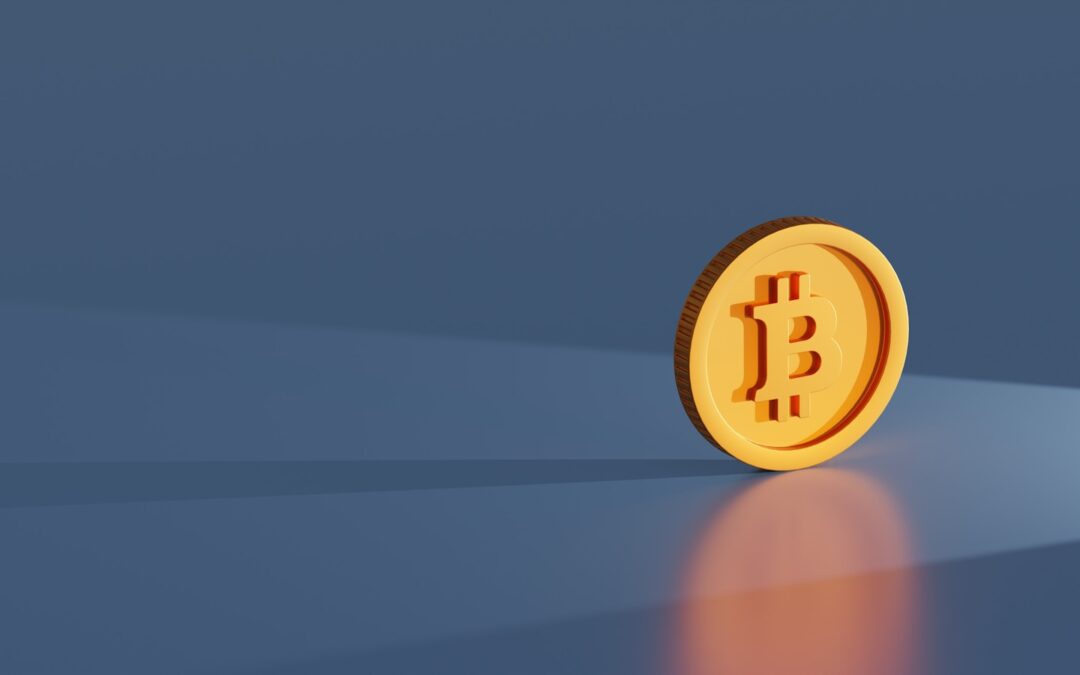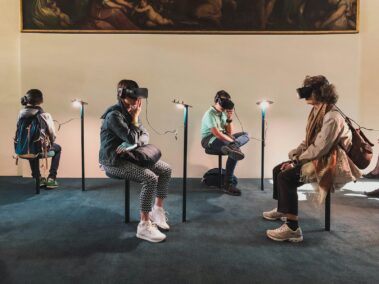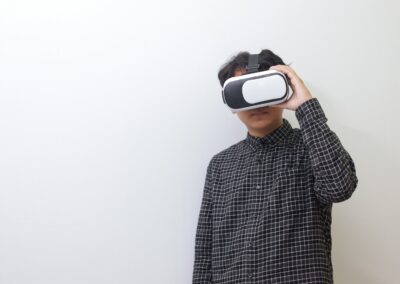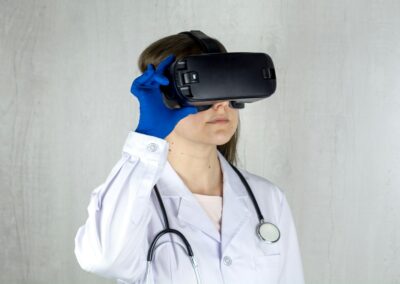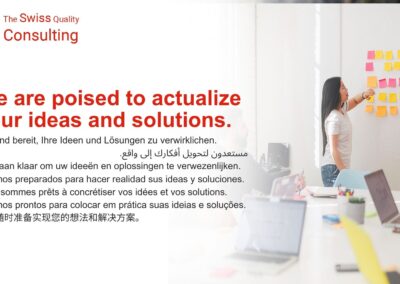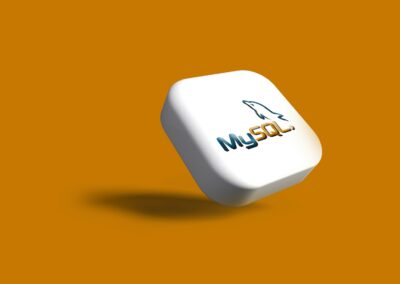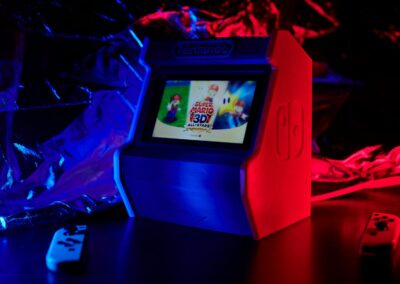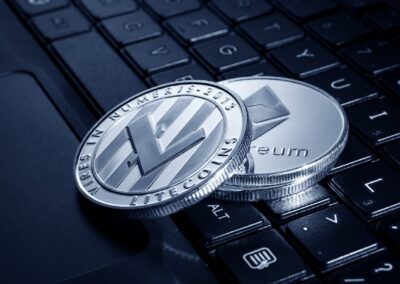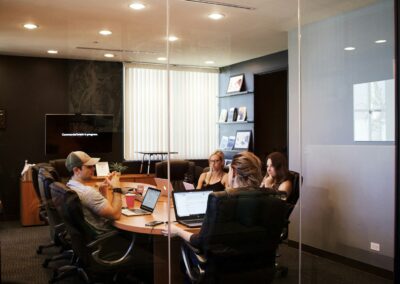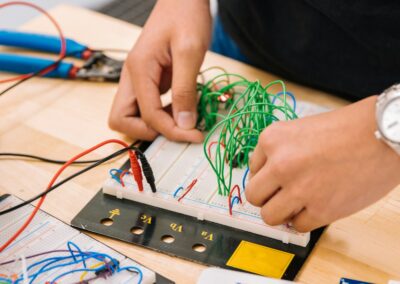The Rise of Virtual Laboratories in Metaverse Learning
Introduction to Virtual Laboratories
The development of virtual laboratories and simulations in metaverse learning provides hands-on practice and experimentation, significantly enhancing the understanding of complex concepts. In the evolving landscape of education, the metaverse offers an innovative platform for immersive learning experiences. These virtual environments enable students to engage in practical exercises that are otherwise limited by physical constraints.
In regions such as Saudi Arabia and the UAE, known for their rapid technological advancements and commitment to educational excellence, the integration of virtual laboratories is a natural progression. These countries are investing heavily in modern technology to improve education systems, ensuring that students are equipped with the skills needed for the future. By leveraging virtual laboratories, educational institutions in Riyadh and Dubai can offer students unprecedented access to practical, experiential learning.
Virtual laboratories allow students to simulate experiments and scenarios that would be too dangerous, costly, or impractical in a traditional setting. For example, chemistry students can safely conduct experiments with hazardous substances, while engineering students can test and refine complex systems. This hands-on approach fosters a deeper understanding of the material and prepares students for real-world applications.
Enhancing Hands-on Practice through Metaverse Learning
Metaverse learning transforms theoretical knowledge into practical skills by providing a platform for hands-on practice. In traditional educational settings, students often struggle to connect abstract concepts with real-world applications. Virtual laboratories bridge this gap by offering interactive, engaging, and immersive experiences that bring theoretical knowledge to life.
In Dubai, a hub of innovation and technology, educational institutions are already exploring the potential of metaverse learning. By incorporating virtual laboratories into their curricula, schools and universities can provide students with opportunities to experiment, fail, and learn in a controlled, risk-free environment. This iterative learning process is crucial for mastering complex concepts and developing critical thinking skills.
Moreover, virtual laboratories can be tailored to meet the specific needs of different disciplines. Medical students, for example, can practice surgical procedures in a virtual operating room, while architecture students can design and explore virtual buildings. This customized approach ensures that students receive relevant, hands-on experience that directly applies to their fields of study.
The Role of AI in Virtual Laboratories
Artificial Intelligence (AI) plays a pivotal role in enhancing the capabilities of virtual laboratories. By integrating AI, virtual labs can provide personalized learning experiences, adapting to the individual needs and progress of each student. AI-driven simulations can analyze student performance, identify areas of improvement, and offer targeted feedback, creating a more effective and efficient learning environment.
In Riyadh, where AI is being increasingly integrated into various sectors, its application in education is particularly promising. AI can generate realistic scenarios and adapt the difficulty level based on the student’s proficiency, ensuring that each learner is adequately challenged and supported. This level of personalization is difficult to achieve in traditional classroom settings, highlighting the unique advantages of virtual laboratories.
Furthermore, AI can facilitate collaborative learning experiences within the metaverse. Students can work together on virtual experiments and projects, regardless of their physical location. This fosters a sense of community and collaboration, essential skills for the modern workforce. By leveraging AI, virtual laboratories can create dynamic, interactive, and engaging learning environments that prepare students for the complexities of their future careers.
Impact of Virtual Laboratories on Education
Improving Accessibility and Inclusivity in Education
Virtual laboratories in metaverse learning significantly improve accessibility and inclusivity in education. Traditional laboratories require significant resources, including physical space, equipment, and materials, which can limit access for many students. Virtual labs, on the other hand, are accessible from anywhere with an internet connection, democratizing access to high-quality educational resources.
In Saudi Arabia and the UAE, where education is a key priority, virtual laboratories can help bridge the gap between urban and rural schools. Students in remote areas can access the same high-quality resources as their peers in major cities like Riyadh and Dubai. This not only ensures equal learning opportunities but also helps identify and nurture talent across the entire country.
Additionally, virtual laboratories can accommodate diverse learning styles and needs. Students with disabilities, for instance, can benefit from customizable interfaces and adaptive technologies that make learning more accessible. By providing a flexible and inclusive learning environment, virtual laboratories help create a more equitable educational landscape.
Driving Innovation and Creativity in Learning
The integration of virtual laboratories in metaverse learning drives innovation and creativity in education. These immersive environments encourage students to explore, experiment, and think outside the box. By simulating real-world scenarios and challenges, virtual labs inspire students to apply their knowledge in creative and innovative ways.
In Dubai, known for its forward-thinking approach and emphasis on innovation, educational institutions are using virtual laboratories to foster a culture of creativity. Students are encouraged to take risks, experiment with new ideas, and develop innovative solutions to complex problems. This not only enhances their learning experience but also prepares them for the dynamic and rapidly changing job market.
Moreover, virtual laboratories support interdisciplinary learning by allowing students to explore the intersections of different fields. For example, a project in a virtual lab might require knowledge of both biology and computer science, encouraging students to integrate and apply their learning across disciplines. This holistic approach to education fosters a deeper understanding of the material and cultivates critical thinking and problem-solving skills.
Preparing Students for Future Careers
Virtual laboratories play a crucial role in preparing students for future careers by providing practical, hands-on experience that is directly applicable to the workplace. In today’s job market, employers are looking for candidates who can demonstrate not only theoretical knowledge but also practical skills and real-world experience. Virtual laboratories help bridge this gap by offering students the opportunity to apply their learning in realistic scenarios.
In regions like Riyadh and Dubai, where there is a strong emphasis on technological innovation and economic diversification, virtual laboratories can help develop a skilled and adaptable workforce. By providing students with hands-on experience in their chosen fields, virtual labs ensure that graduates are well-prepared to meet the demands of the modern workplace.
Furthermore, virtual laboratories can help students develop essential soft skills such as teamwork, communication, and adaptability. Collaborative projects and simulations in virtual labs require students to work together, communicate effectively, and adapt to changing circumstances. These skills are highly valued by employers and are crucial for success in any career.
Conclusion: The Future of Education with Virtual Laboratories
The development of virtual laboratories and simulations in metaverse learning provides a transformative approach to education, offering hands-on practice and experimentation that enhances the understanding of complex concepts. By leveraging the power of AI and immersive technologies, virtual laboratories create engaging, interactive, and inclusive learning environments that prepare students for the challenges of the modern world.
In regions like Saudi Arabia and the UAE, where there is a strong commitment to advancing education and technology, the integration of virtual laboratories can significantly elevate the quality of education. By providing students with practical, real-world experience and fostering innovation and creativity, virtual laboratories ensure that the next generation is well-equipped to drive progress and achieve success.
#VirtualLaboratories #MetaverseLearning #HandsOnPractice #Experimentation #ComplexConcepts #SaudiArabia #UAE #Riyadh #Dubai #AIinEducation #ModernTechnology

